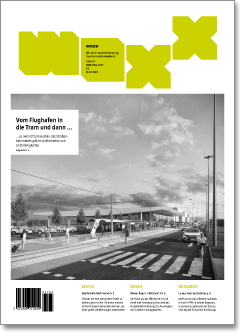On Sunday, New Yorker Jeffrey Lewis is playing at Exit07. woxx talked to the antifolk hero about comics, capitalism and Pussy Riot.

For readers who might not know you, could you present yourself?
I’ve lived in
New York City my whole life, except for a brief time living in Austin, Texas, before I started touring and ended up back in New York City. I’ve always drawn comic books, since I was little.
You are one of the most famous representatives of New York’s antifolk scene. How would you define antifolk?
It’s kind of
just anybody who ever played at this one tiny little club called Sidewalk. If you played there everybody says you play antifolk, no matter what kind of music you make. Sidewalk has an Open Mic on Monday nights, it’s been going for more than 20 years, and anybody can just walk off the street and sign up and play. It’s how I started playing music in New York, and it’s where other people like Regina Spektor and Adam Green also started. We all get called antifolk
because we played at Sidewalk even though I think we play quite different styles of music. Ironically, I remember meeting Devendra Banhart when he was just starting out playing in New York, in the early 2000s, but he never played the Open Mic at Sidewalk, so nobody ever called him antifolk. If he had played at Sidewalk even one time he probably would have been called antifolk instead of “freak folk” or whatever.
Who would you say are some of the musical ancestors of the antifolk movement, and which are some of the artists that have most influenced you?
Well, I’m certainly influenced by some ancestors of New York City music, particularly the ancestors in my neighborhood, which is the neighborhood where Sidewalk is, and
where CBGBs was, and other little music clubs. The Fugs, The Holy Modal Rounders, The Godz, The Velvet Underground, that sort of stuff. I have every record all those people ever made. I have every single Lou Reed album, and he has a lot. But those records were usually quite cheap to find in New York City, nobody cared about used vinyl copies of 70s and 80s Lou Reed records, so my brother and I eventually discovered that we’d accidentally bought every one of them over a number of years. Lou Reed is certainly a big influence on me, and so are the Fugs.
Instead of the traditional “What would Jesus do?” you promote the question “What would Pussy Riot do?” What is it that inspires you
about that group?
I read an
article in the New York Times about all of the modern, cool bands that are doing commercials for clothes and cars and things, and it made me a bit sick to
think that there seemed to be no comment at all made about whether this represented a crisis of purpose for an artist. It was just presented like “artists
are discovering a good new source of revenue, now that album sales are down.” As if the purpose of an artist is to make money. And then when the news about
Pussy Riot started coming to our awareness in America, a band that obviously had other reasons to be a band, it struck me as establishing a violent contrast
to the different reasons people were in bands. I was taking a subway in New York one day and I saw a giant advertisement for alcohol featuring a popular
young band from California and I was so disgusted and disturbed that I went home and started writing the song. But it took a long time to finish writing,
there was so much I wanted to say. It also relates quite a bit to the comic book writer Alan Moore, the way that he talks about art having the
magical power to change the way people think about things. It’s quite true, it seems. Artists have more power than they think, really.
Many antifolk artists, including yourself, do not conform to the rules of traditional music business, yet are still
internationally successful. Is antifolk also an alternative draft to capitalist society?
Are there really any internationally successful antifolk artists? The musician Paleface was asked why he changed his style from a stranger New York antifolk style to a more normal American country style and he said, “because Kimya Dawson and Jeffrey Lewis are the only two humans who ever made a living playing antifolk.” I thought that was a funny answer. I think every artist has to figure out their own way to survive, everybody finds a different path, there’s no one particular way, whether it’s part of western capitalist society or not.
I never even thought I was going to be part of the music business, I was just playing the Open Mic and making cassette tapes of my songs, and selling my tapes for $3 at the Open Mic and at my little shows. That’s all I was doing from 1998 until 2001, and that’s all I ever thought about doing. I thought if the songs were
good then the people who got the tapes could make copies of them for other people, and the songs could naturally reach the people who wanted to hear them.
Then when the Moldy Peaches got signed to Rough Trade Records, the head of Rough Trade asked them if there were other New York City artists that they
might recommend to the label to check out, and they gave him a CD of some of my songs. I didn’t even know any of this was happening, I wasn’t even living in
New York anymore, I had moved to Austin, Texas. Then I was contacted by Rough Trade in an email. They said they had heard some of these songs and they asked
if I’d be interested in releasing a CD with them.
After that I started learning how to book my own concerts and how to assemble tours, it was a lot of work in the early days. It’s still a lot of work but a little easier now because I know how to do it. I don’t know if there are many other artists who have a story like that, but I’m sure everybody has a different story. As
far as “capitalist society”, I usually always had a rule with my band, where we’d say the concerts were communist but the merchandise table was capitalist.
We would share all the concert money equally, but then everybody was free to make their own merchandise, sell it at the table and keep all the money. So the bass player might make one shirt design to sell for the tour and the drummer would make a different shirt, and they’d be in competition each night to see who sold more shirts!
Besides being a songwriter, you are also a cartoonist. Some European countries like France and Belgium also have a very active comic genre,
the “bande dessinée”. Do you follow European comics at all, and what might be some of your favorite authors/series?
I never followed European comic books, though I have read every single Tintin book. When I was a kid I loved those books and I always wanted to buy the ones I
didn’t have, and eventually over some years I had all of them. That was my introduction to non-American comic books. But I never got interested in
Métal Hurlant magazine, or Ranxerox, or Moebius, or all that sort of stuff. When I was a kid it all looked too “adult” because it had naked people and violence,
but then when I got older it didn’t seem interesting to me because I wanted something more emotional, I wasn’t very interested in that sort of fantasy or
science fiction stuff. I do like some of the L’Association stuff, like the travel comics by Guy Delisle, or some Lewis Trondheim stuff. I’m sure
there are many great European comics that I have not read.
Sometimes you even combine your music and drawings, in the so-called “Low-budget movies” or “Low-budget documentaries”. What exactly
is that?
I do full-color illustrated versions of some of my songs, sometimes strange stories like “The Creeping Brain” or sometimes history like “The History of Communism”. I have been doing this for many years and now I have about 37 different illustrated songs. In the early days I would always just hold up the artwork and turn the pages while I was singing, but then when I started playing bigger concerts I had to switch to using a projector and projecting the artwork so everybody could see it better. Every night I carry some of the art books, and the projector too, and when I get to the show I have to decide whether it’s a good night to use the books or a good night to use the projector, depending on the size and shape of the room.
You have traveled with a large variety of accompanying musicians over the years. Can you tell us more about your current line-up, The
Jrams? What sound can concertgoers expect?
Usually I try to have each show be a mix of old songs, new songs, quiet songs, loud songs, solo songs, band songs, illustrated songs, we usually don’t have a set list. I prefer to treat each set like a chess game, we have many different songs, which are like different chess pieces, and after every move you make a decision about what could be the best move to make next. A chess player can’t have a plan in advance about what every move is going to be; you plan ahead a little bit
but you have to think in the moment.
The Jrams are Heather Wagner on drums and Caitlin Gray on bass, they are both from New Jersey but they both live in Brooklyn. I really like having the two women in the band for the different vocal quality. When we sing different parts back and forth, it really has quite a different feeling with this mix of male and female vocals. There’s also a nice age mix, because Caitlin’s in her 20s, I’m in my 30s and Heather’s in her 40s. We’re like a very strange
family. When I was playing as Jeffrey Lewis & The Junkyard, with my brother Jack on bass and our friend Dave on drums, the drums were very tight
and precise and the bass was more punk and wild and unpredictable, and that’s the opposite of the current situation, now the drums are the crazier part and
the bass is at the level of a very powerful machine. Caitlin is definitely the best bass player and best piano player that I’ve had in the band, I think.
But everybody that I’ve ever played with has brought their own style and attitude to the music, I think the best thing is always to not try to repeat the sound of the past, it’s obviously better to let each combination develop its own chemistry and explore its own power. Look at the Velvet Underground, they only had
four albums, but in that short time they went through big line-up changes, by the time of their fourth album, “Loaded”, they didn’t have Nico, they didn’t
have John Cale, they didn’t even have Moe Tucker drumming on the album (though she was still playing live with them). The Velvet Underground are
considered an iconic band, as if they are one thing, but each of the four albums has a somewhat different band, with a different flavor and different
kind of power. And musicians with long careers, like Miles Davis, would have played with many, many, many different people over the course of different
albums and different tours and different periods. It keeps things exciting.
Finally – you have been on the road for almost 15 years now and are close to “turning the big 4-0” as you say in your song “Back When
I Was 4”. What’s next for Jeffrey Lewis? woxx caught up with you while you were working in the studio in England – are you currently working on a specific project?
Yes, I’m in a recording studio in a strange southeastern part of England right now. Somebody emailed me a month or two ago asking if I’d like to come record here. A studio engineer who was just a fan, he offered a whole free week of recording time, that’s a great offer! So I decided to fly from New York a week
early, and spend a week recording before going to the first gig in Hamburg. I never saw the studio before and didn’t know the engineer, but
it’s been good, I don’t know if we’ll finish a new album this week, but maybe. What is next is always just new songs and new comic books. I’ve got a good start on my new comic book issue, “Fuff #10”, but I can never really work on comic books while I’m on tour, so it will have to wait until I get home at the end of August, and then I’ll work more on it. That makes me the happiest, working on comic books and making songs that I feel good about. I also write a lot of songs that I don’t feel good about. Of every ten songs I write I might keep one. So I always just want to draw more and write more. When I’m happy with what I’ve done it’s my favorite feeling. But it can be rare.
Jeffrey Lewis and The Jrams, this Sunday, August 10th, in Exit07
See also „Künstler haben mehr Macht, als sie glauben“




